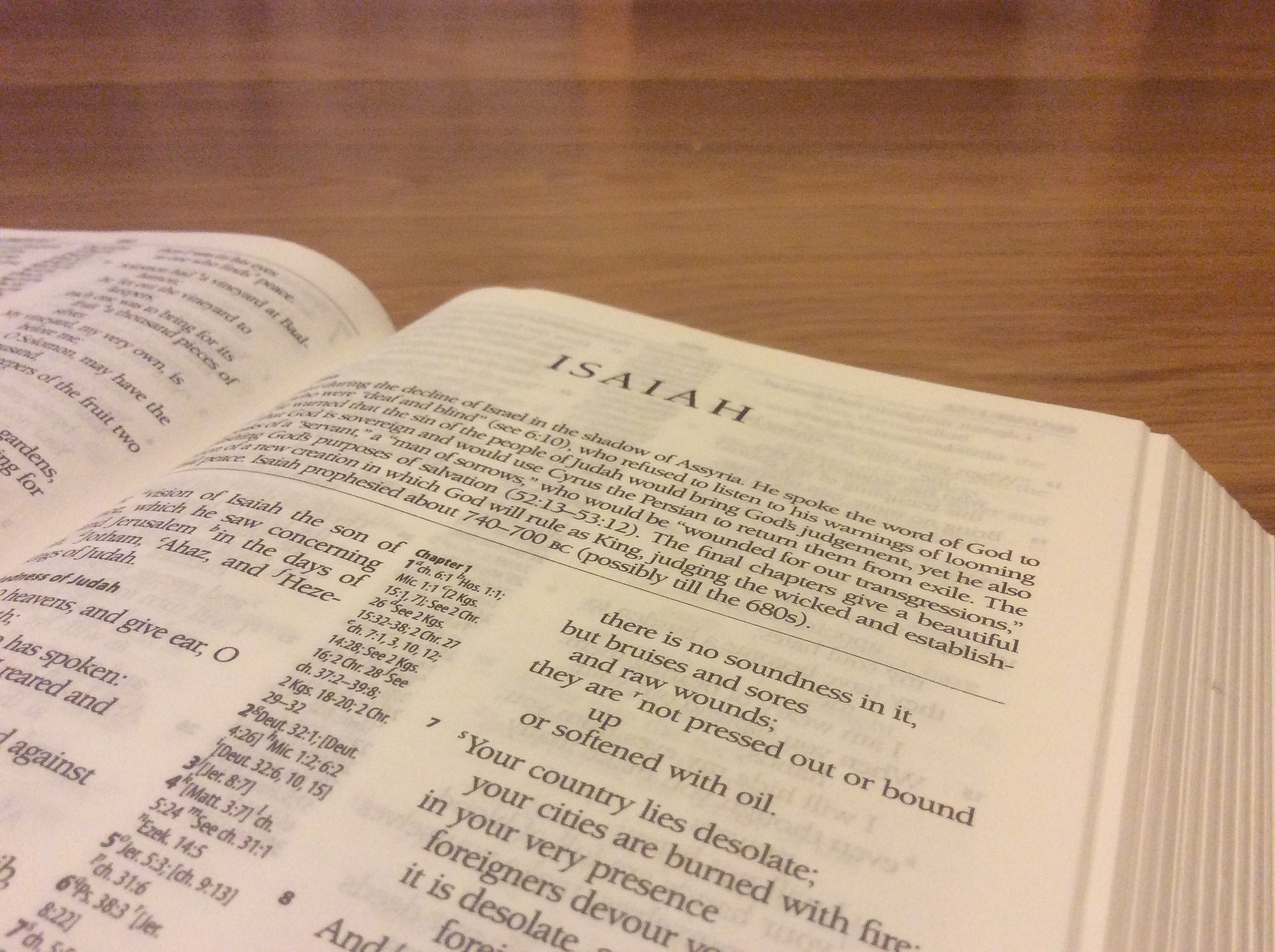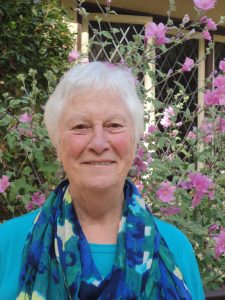- All
- Wisdom
- We Stand on Their Shoulders
- Vocation
- Uncategorized
- Stories Seldom Heard
- Spirituality
- Social Justice
- Prayer
- Peace
- Oneness
- Love
- Letting Go
- Lent
- Joy
- Inspirational Images
- Hope / Healing
- Holy Week
- Gratefulness
- God's Presence
- General News Stories
- Forgiveness
- Finding God
- Faith
- Easter
- Dominican Saints
- Discipleship
- Courage
- Christmas
- Catholic Sisters Week
- Care of the Earth
- Blessing
- Beauty
- Advent
- #justiceOPportunity
Stories Seldom Heard
Sr. Patricia Bruno, OP

244th Edition; November 2019
The Vocation of the Prophets
 Welcome to Stories Seldom Heard. I would especially like to welcome the members of Holy Trinity Parish, Westfield, New Jersey.
Welcome to Stories Seldom Heard. I would especially like to welcome the members of Holy Trinity Parish, Westfield, New Jersey.
In true prophetic fashion, Isaiah and the other prophets exposed the sins of the Israelite people, but that was not their total message. They also reminded the people of God’s accessible mercy, compassion, and forgiveness.
The vocation of a prophet is not an easy one. Since they clearly identify the sins of their society, they expose themselves to the anger of the community, especially to the leaders of the country. Isaiah’s mission was to announce, in God’s name, the downfall of the great tribes of Israel and Judah. We can only imagine how unpopular Isaiah must have been with the King and the authorities because Isaiah explicitly related their society’s demise to their leaders’ unfaithfulness to God’s law.
Contrasted with the saints of the Old Testament, Abraham and Sarah, who welcomed the strangers, fed them, and cared for their needs, Judah and Israel were oppressing the poor. Unlike, Moses, who listened to God’s voice and trusted in God’s power to help the Israelites escape from oppression, the Israelite kings were oppressing those who were in their care, especially the foreigners. Isaiah doesn’t use obscure or vague examples of the authorities’ hypocrisy. He is as straight-talking as the God who speaks to him. “The law is not mysterious or beyond your reach…. Cease to do evil. Learn to do good, search for justice, help the oppressed, be just to the orphan, plead for the widow” (Is. 1:17).
It is hard to read Isaiah’s condemnation of his society. The people’s pride, lack of compassion and integrity are blatant. “What a harlot she (Jerusalem) has become…once integrity lived there, but now assassins” (Is. 1:21). We know, however, that these negative qualities are not isolated to the year 740BC. We know that we, too, are in need of conversion, both nationally and personally. “Help the oppressed, be just to the orphans, plead for the widows.” This command of God is very near to us these days. It is as close to us as it was to Abraham, Sarah, Moses, and Isaiah.
When we disregard God’s command, there are tangible signs in society. Cardinal Bergoglio, now Pope Francis, in a homily in Buenos Aires in 2010, identified some of the signs: the human rights abuses in his country. His words echo Isaiah and other ancient and modern prophets.
In this city, there are many slaves….sweatshops…trafficking…when we read the stories of ancient civilizations …people were killed and we were horrified….In this city are made human sacrifices that kill the dignity of men and women, boys and girls subjected to trafficking and slavery. We cannot stay quiet. This city is full of boys and girls beaten by the wayside….and then they are left lying by the roadside (1).
This is a sobering message and a reality that is not isolated in Buenos Aires. The U.S. Justice Department estimates that 17,000 people are trafficked into this country every year, but the true figure could be higher, because of the large numbers of undocumented immigrants. About 300,000 children are believed to be currently at risk of sexual exploitation. Isaiah’s words echo in our minds and hearts each day. “Be just to the orphan, plead for the widow.”
Pope Francis has frequently questioned whether we have become nations that are indifferent to the poor.
The most economically advanced societies are witnessing a growing trend
towards extreme individualism which, combined with a utilitarian mentality
and reinforced by the media, is producing a “globalization of
indifference.” In this scenario, migrants, refugees, displaced persons and
victims of trafficking have become emblems of exclusion. . .That attitude
is an alarm bell warning of the moral decline we will face if we continue
to give ground to the throw-away culture. (2)
However, Pope Francis, like the Truthsayers of old, also offers us hope. Because we are people of faith, we have experienced and trust God’s mercy. “Think of the prophet Isaiah who asserts that even if our sins were scarlet red, God’s love would make them white as snow…” (3). To recognize our need for forgiveness is to recognize that we, like the prophets, in small or greater ways participate in the injustices in our society.
Our vocation as disciples is not to scold, but to examine our own lives as we bring to public attention what is contrary to God’s law in our nation. Our responsibility is to act on behalf of the common good for all. Even though we might feel overwhelmed by powerful leaders, our belief and articulation of God’s vision for the world is a frightening announcement to those who believe they have control of the forces of our world. For those who think of the world as a closed system which they alone have the power to rule, have forgotten or never known the God of the scriptures.
Isaiah recalls past events when God intervened, surprised and guided the people. Leaning on these memories Isaiah encourages us to do the same and to trust in a God of the unexpected. God has not left us on our own. God is drawing us forward towards wholeness. The future is still unfolding. It is not an undirected future, but a movement that is filled with God’s life-giving force. Isaiah’s message of hope is a subversive message because God promises to be with us in the chaos of our lives. In Chapter 44:3 God says, “I will pour out my spirit on your descendants, my blessing on your children…. I will not forget you…. I will dispel your faults like a cloud, your sins like mist. Come back to me for I have redeemed you.”
Isaiah reminds us that because we hope in God’s promises, we refuse to accept the reality of our day as the only possibility. We did not fashion our world or ourselves. “I form the light and create the dark” (Is 45:7). “Can it (the pot) argue with the one who fashioned it, one vessel among earthen vessels? Does the clay say to its fashioner, ‘What are you making?’ Does the thing say to the maker, ‘You have no skill’” (Is. 45:9)?
To make room in our well-planned lives and for the unexpected is another name for grace. To recognize and be amazed at God’s power working in the midst of our folly is to recognize grace in our world. To believe that we are called to be prophetic witnesses, as were the first prophets, is to trust that it is Grace calling us to respond. “Grace always comes first, then comes all the rest” (4). This prophetic vocation to which each of us is called is a humbling process. Listening to God’s voice calling us forward requires much patience with ourselves. Rainer Maria Rilke says it more poetically. “Be patient and without resentment, and know that the least we can do is to make God’s becoming no more difficult than earth makes it for spring when it wants to arrive. Be comforted and glad” (5).
Reading scripture and daily meditation helps bring forth the emerging spring within us. So perhaps each morning this month we might read Isaiah 61:1- 3 and read the headlines in the newspaper or email messages. Then each evening take three minutes noting how we have responded to our prophetic call.
- Matthew E. Bunson, Pope Francis, Our Sunday Visitor, Inc., Huntington, Indiana, 46750, 2013. pages 154-155.
- ibid, p. 192
- ibid, p. 190
- ibid, p. 190
- Anita Barrows and Joanna Macy, A Year With Rilke: Daily Readings from the Best of Ranier Maria Rilke. HarperOne, 2009, December 31.
“Stories Seldom Heard” is a monthly article written by Sister Patricia Bruno, O.P. Sister is a Dominican Sister of San Rafael, California. This service is offered to the Christian community to enrich one’s personal and spiritual life. The articles can be used for individual or group reflection.
I believe that the world was created and approved by love, that it subsists, coheres, and endures by love, and that, insofar as it is redeemable, it can be redeemed
Read More